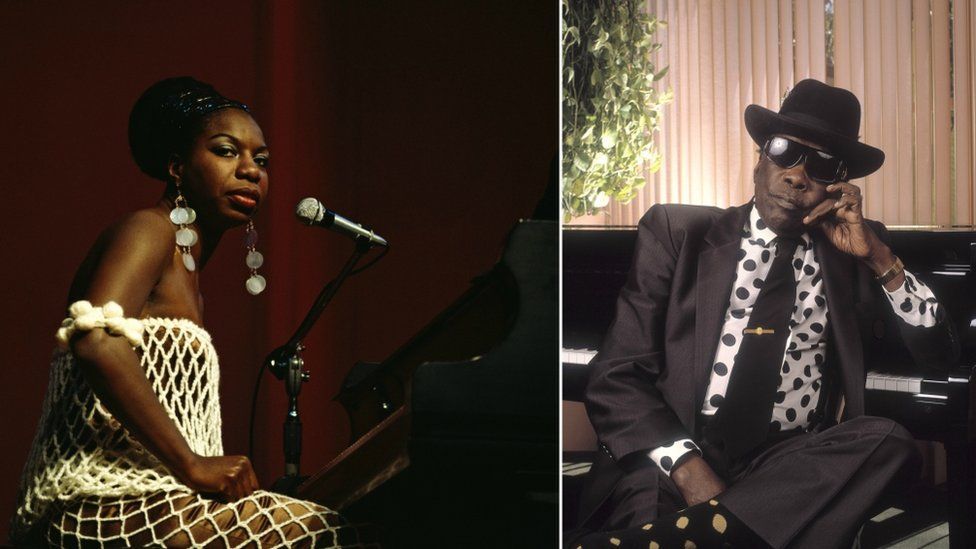Design by
Welcome to
REAL-LIFE MUSIC
Featured Music
Crystal Throne Album
Click to ListenABOUT
Real-Life Music is the home of recording artist SCY (pronounced sky). Here we live by simple principles such as, quality over quantity. This is why we only create, accept, promote and distribute music of the highest caliber. We believe in setting our own path instead of following what everyone else is doing at any particular moment. As a result of this belief, Real-Life Music does not and will not follow the microwave mindset that most other labels have developed during the recent years of the music business.
ARTISTS
DISCOGRAPHY
NEWS
Working On New Album
SCY is currently in the studio working on a new album. Shoot him a text to get the inside scoop: + 1-408-669-3053

Music startup Djooky , an emerging artist platform, has launched a new feature on its app called HitHunter that promises to pay its users cash prizes for identifying potential hits. The new A&R feature follows the inception of the Djooky Music Awards in July 2020. Described as “the world’s first global online music contest”, the competition is open to all artists and songwriters worldwide and will run four times a year. Users can take part in the voting process for the awards via the Djooky app, with the winning artist receiving $10,000 in cash and a recording session at Capitol Studios in Hollywood. Co-founded by multi-platinum US producer Brian Malouf, who has worked with the likes of Madonna and Michael Jackson, and ex- Universal Ukraine executive and record producer Andrew Dakhovsky, (CEO), Djooky operates from Los Angeles, Berlin, London and Kyiv in Ukraine. The Djooky team also includes Grammy-nominated artist and music director Patrice Rushen, UK-based Ivor Novello winning songwriter Sacha Skarbek and producer/music executive and songwriter Justin Gray (whose credits include Mariah Carey, John Legend and Avril Lavigne). The HitHunter feature works by letting the app’s users back songs they believe will grow to be popular on the platform. Djooky plans to run weekly and seasonal leaderboards for HitHunter via its app, with each user being granted 100 ‘Hit Points (HPs)’ within the app, which reset every week. The more ‘HPs’ a user allocates to a given song, the higher they will rank if the track proves to be a hit amongst other users in the Djooky Music Awards. Djooky states that cash prizes of $100, $75, $50, $25 and $10 will be awarded to successful users who can identify “the next potential big hit” on a weekly basis. A grand prize of $1000 will be paid to the world’s “ultimate HitHunter” in the final global round of the competition, with $500, $250, $100 and $50 being presented to users finishing second, third, fourth and fifth.

Amidst the growing anxieties and threats of the closing year, some artists have thrived and grown throughout 2020. One such artist is SCY, who has recently released his new single “The Sky is Falling,” which continues to make rounds across digital airwaves. SCY (pronounced as “Sky”) is an artist and recording engineer based in Los Angeles. He currently owns and runs Real-Life Music LLC, a sound engineering company that has worked with many influential artists on the west coast. The engineering and music company started in the early 90s with the sole intention of delivering high-quality music that would go beyond the white noise of no-substance music that invades today’s radios. A resident of the less inviting areas of Los Angeles, SCY knows all too well the crime, corruption, and violence that plagues the streets of Crenshaw and other neighboring regions. He grew up amongst music circles and would listen to music that would glorify the community’s degrading aspects. “Every song seemed to be about degrading someone or partying and every video put out seemed to show life as nothing but a party,” SCY explains. Unsatisfied with where the local music scene was going, he started pursuing his own music brand that would deliver content with substance that other people could relate to and draw inspiration from. The artist formed Real-Life Music to “bridge the gap between make believe and reality.” Real-Life and SCY have made a living and legacy, creating music that enriches people. Yet after years of being on the supporting end, SCY has decided to step out of the mixing booth and start recording his original material. He starts this new journey with the release of “The Sky is Falling,” which is now available on Spotify, Apple Music, and other channels. The song narrates the life of a man who appears to have it all but struggles with emptiness. He then meets a woman who fills the void instantly and gives him a sense of meaning. The new single is but the tip of the iceberg as SCY has many other songs and arrangements lined up for release, which are all currently in the works. “I have so many songs, musical arrangements, and melodies in my head,” he shares. “I already have the bare bone concepts of 3 future albums ready to go. I also feel it is imperative that I keep educating myself on the ever changing music businesses.” Accordingly, SCY looks to make his way through the sea of artists and climb his way to the top in the next five years. He settles for nothing less than the highest of goals and works hard to reach them. The artist relies most on the originality and relatability of his music and, as a man with a day job, seeks to connect with all the realities of life. The themes of his music are not far from the daily musings that fans face regularly. He writes about everything people know best, including stories on life, bills, taxes, and anything under the sun that occurs to anyone. He also does his best to keep his music original, staying away from the proverbial “Big Mac of music” that guarantees results but sounds like the majority of tracks that continue to make rounds on digital platforms today. SCY is committed to bringing high-quality music, and “The Sky Is Falling” is the starting point of all of that. To check out his latest single and learn more about the musician, check out SCY’s website and Spotify .

The record label and publisher BMG has uncovered evidence that some black artists were paid less than their white counterparts. The company launched a review of its catalogue in June, vowing to address "inequities or anomalies" in 30 days. The inquiry took significantly longer, but presented its findings on Friday. It said four of the 33 labels BMG had acquired since forming in 2008 showed "significant differences" in the royalty rates given to black artists. Although it did not identify the labels in question, BMG said black musicians' royalties were up to 3.4% lower than those of non-black artists. "While difference is not necessarily evidence of bias, there were instances of differences that are significant enough that they warrant closer attention," said Ben Katovsky, who led the investigation. "We will follow this through to its conclusion." UK music industry urged to drop 'offensive' BAME Music industry reports progress on diversity BMG's CEO, Hartwig Masuch, called on other record labels to examine their own record deals. "Since before the dawn of rock 'n' roll, virtually all pop and rock music has its roots in black music," he said in a statement. "Yet music's history books are littered with tales of discriminatory treatment of black musicians. "Making good on our commitment to search for racial disadvantage in our historic acquired recorded catalogues has been an enormous and highly complex task. We have learned a lot and there is still more to discover. "We invite other labels to join us in this mission." 'We can do better' BMG owns rights to recordings by dozens of influential black artists including Nina Simone, John Lee Hooker, Little Richard, The Sugarhill Gang, Grandmaster Flash and Toots & The Maytals. It also owns the publishing catalogues of Chrysalis Music and Virgin. It acquired the majority of its music in a seven-year spending spree between 2009 and 2016, snapping up the rights to more than 100 song catalogues. Masuch decided to examine the record contracts he had inherited in those deals earlier this year, following #BlackoutTuesday, a music industry-endorsed day of silence following the killing of George Floyd in Minneapolis. He was prompted by a quote from professor and author Josh Kun, which was shared widely by musicians during the blackout, including Kelis and Erykah Badu. "If the music industry wants to support black lives, labels and platforms can start with amending contracts, distributing royalties, diversifying boardrooms, and retroactively paying back all the black artists, and their families, they have built their empires on," Professor Kun wrote. Ben Katovsky said the inquiry had uncovered record contracts dating back to the 1960s, in which both black and non-black artists were given terms that "are not appropriate". "While these legacy contracts may have been entered into willingly, are fully legally enforceable and we paid the previous owners full market value for them, we feel we can do better," he said in a statement. "We will shortly bring forward proposals designed to do just that." BMG did not identify which four labels had been responsible for under-paying black artists; and warned the results "cannot be extrapolated to prove or disprove racial discrimination in the music industry more broadly". The BPI, which represents the British recorded music industry, welcomed the report, saying: "It's good to see any initiative that fosters racial equity across the industry. "Discrimination has no place in music and the hugely significant contribution of black artists to our music and culture must be rightly recognised and valued."













